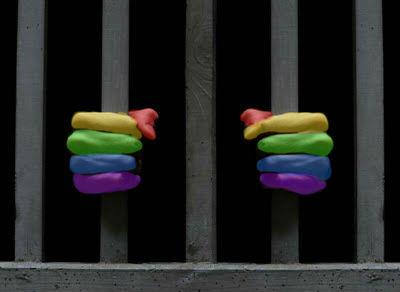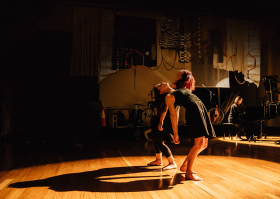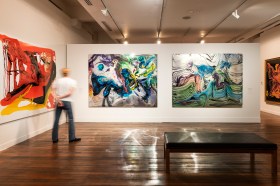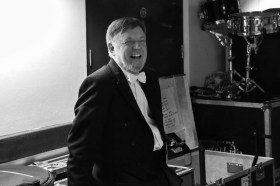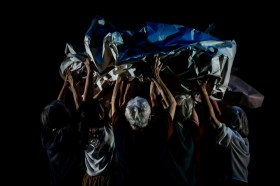The new censorship typifed by the Paul Yore child pornography accusation is a symptom of the lack of respect for cultural freedom and creative expression, also felt by musicians.
Yore’s works, including an installation Everything’s Fucked featuring a young Justin Bieber directly above a urinating dildo, were seized by Police at Linden Contemporary Arts Centre last week following a complaint that they constituted child pornography.
Child pornography as defined the Crimes Act involves a process of documentation involving the sexual exploitation of minors Yore’s work a collage of found objects and the interpretation of the work, whether pornographic or not, is by the viewer.
It seems to me that the test as to whether Yore’s work is child pornography or not fails at the most basic level. Considering the gravity of the alleged offence and the potential for personal and profession damage to the artist involved, the police should immediately either charge Yore or make a statement that they won’t charge Yore and apologise for the intervention.
But that should not be an end to the matter. After this mess has blown over, the murky motives of the complainants and how they managed to get the police to do their political bullying should be pursued.
I believe we need an independent broad-based commission to examine the issue. In particular, the police need to be held accountable for their responsibilities under Article 27 of the Universal Declaration of Human Rights which the Australian Government is a signatory. It state that ‘Everyone has the right freely to participate in the cultural life of the community, to enjoy the arts and to share in scientific advancement and its benefits.’
These are principles that have been trampled on, both in the Yore case and in many other recent examples of police activity.
Since 2004, the music community has been battling state regulatory interventions in the practices of making music either by outdated or ill-considered regulation covering noise, building regulation, liquor licensing, and planning. To their credit, some state governments (notably NSW, Victoria and South Australia) have started to listen and are beginning to act.
But the battlefront is broad, affects all artistic disciplines and is still partially undefined. Hence the prism of human rights is a useful context in which to define and arrest the unrelenting tide of state intervention on cultural and artistic practice, whether malicious, Machiavellian or unintended.
I don’t know of anyone who would actively advocate for child pornography but the raid on Linden Gallery was not about child pornography. It was about a group of small-minded extremists successfully manipulating the police for their own ends.
Pornography, body image, sexuality and eroticism are all valid areas of artistic examination and critical engagement. Without this, the cultural space is left to the commercial interests of the sex industry to define aspects such as the aesthetics of eroticism and the culture of sexuality. I, for one, prefer the alternative view offered through the arts.
The indecent attack on Yore is just one in a number of incidents where the State is overstepping acceptable limits to restrict artists and musicians in pursuing their creative endeavours.
